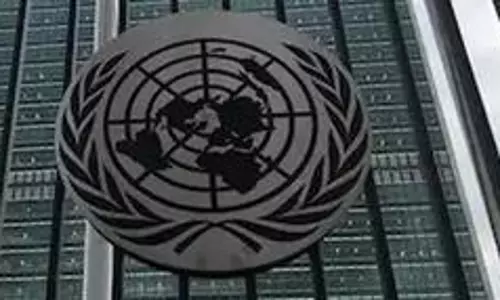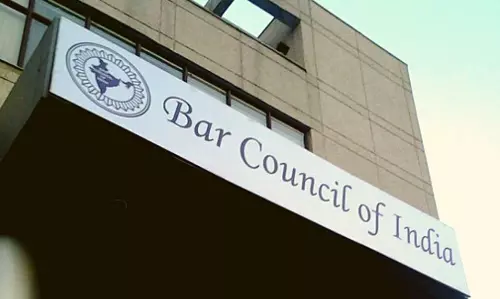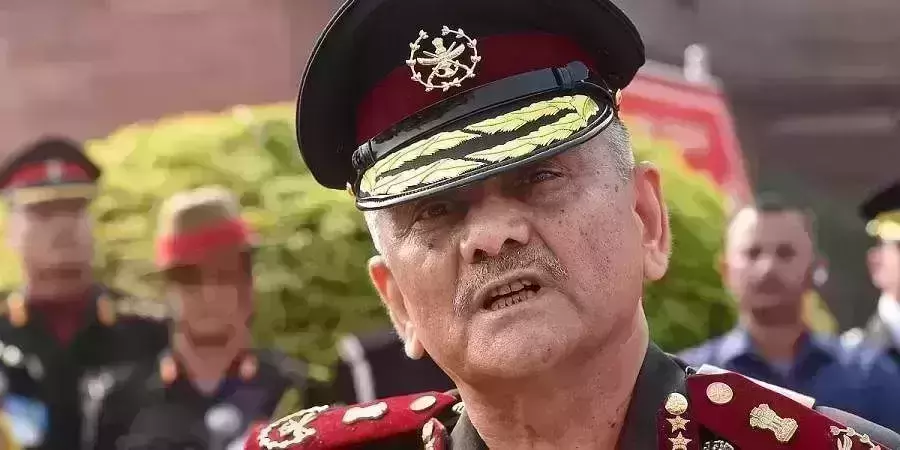
US-Taliban peace agreement
text_fieldsThe US-Taliban peace deal signed the other day at Qatar's capital Doha, handicapped as it is by several provisions, ultimately gives room for optimism. The world hopes with prayers that this deal can bring rays of peace and hope for a people destined to be trampled by military boots and militancy for long. True, going by more recent reports that the Afghan government has distanced itself from abiding by the deal followed by the Taliban's declaration that it will continue its war with the regime, it has cast a shadow over the peace hopes. However, since the onus of making the deal a success is on the US, things are expected to be sorted out eventually.
As per the deal signed by Taliban leader Mullah Abdul Ghani Baradar and US Special Envoy Zalmay Khalilzad, US forces will withdraw completely from Afghan soil over 14 months. And the millitary installations under US-Nato will be shut within135 days. In other words, the US forces which have begun its pullout already, will be out of Afghanistan by March 2021 marking the end of 18 years of US military occupation. Now, have the objectives declared in October 2001, when the then US President Georg W Bush sent the US forces to Taliban strongholds, been achieved? Put differently, does this withdrawal come after eliminating the 'Islamic terrorism' alleged on Taliban? Clearly not. For, the charges raised against the Taliban by the US administration and western media remain intact; and a major part of Afghanistan's territory is still under Taliban control. If so, why would it be that the US government came forward to sign a deal with a Taliban that has not undergone any transormation? The obvious anwer would be that as in the case of Vietnam, the US occupation of Afghanistan was a colossal failure.
To recall the background, the US and Nato occupation of Afghan came in the wake of the 9/11 terrorist attacks in America. The US alleged at that time that Afghanistan had been giving shelter to Osama Bin Laden, leader of Al-Qaeda which was charged as being behind the attack on the twin towers. And there began the confrontation with Taliban. Within two years of occupation, the US declared that it had liberated the territory under Taliban control including capital Kabul. Later in 2011, Osama was captured from Abottabad in Pakistann and killed. With that, it was hoped that occupation would end. But the US military stayed on citing different reasons.
In the meantime, some negotiations were held with the Taliban, for which a special office also was opened in Doha. The Obama administration declared a phased military withdrawal. It is as fact that with the Trump administration taking office, the withdrawal gathered pace, resulting in the Doha talks becoming more vigorous. But it was clearly not thanks to any anti-occupation stance of Trump. One cannot dismiss the reading that what prompted Trump for a different approach is the heavy cost of keeping its force in a foreign land. And that cost is estimated to have been 2 trillion dollars. Remember, this figure is hundred times the gross domestic product of Afghanistan.
What should strike any observer is that imperialism has misused the wealth – which would have been enough for rebuilding many countries like Afghanistan. To be read with it is another related piece of data: the price paid in the form of 1.5 million innocent Afghan lives. Apart from this, there are the lives of tens of thousands of troops including that of the US. After having spent so huge a wealth and sacrificing lacs of human lives, what has this imperialist-military expedition achieved for the world?
It would be naïve to believe that the peace deal that has become a reality just now, will solve the problems created by occupation and militancy completely. Even a cursory glance at the teaty will show some inherent problems. One of them is the peace talks that are to follow between Afghan government and the Taliban. A provision in the deal says that as a prelude to the neogtiations, 5,000 prisoners in the custody of Afghan government have to be released. What angered the Taliban is the most recent statement by Afghan President that this prisoner release part cannot be accepted. Already within the Afghan government, there are internal dissensions surrounding the presidential election.
Not only that, the US will withdraw several embargoes prevailing now against the Taliban. The fact that this will leave the space for Taliban to work more 'freely' is also disturbing the government. In this scenarion, the Afghan govt-Talibann talks scheduled to be held from 10 March, is likely to become more complicated. Only when this stalemate created by occupation is also overcome can the peace deal signed now can be called a total success.























